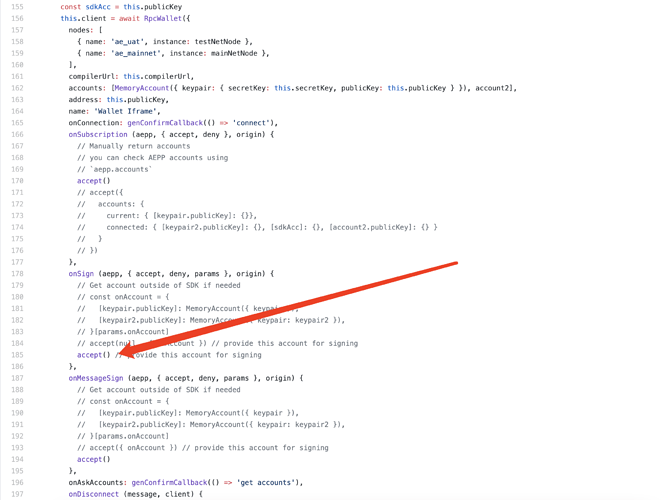As for the wallet integration of AEX2, we can easily interact with AEPP, but we need to set the address and private key in the initialization. I think this is unreasonable, because in some cases, the private key is encrypted, and the user must obtain the real private key to open the page of AEPP
I think it is more reasonable to set only the public key address during initialization, and the private key address at the final confirmation. Do you think?
this is old aex2 code
I hope the
It should be reasonable to pass in the private key when the accept is executed. Then the user decrypts his private key and signs
@marco.chain @bruteforce.chain
Hi @Baixin.chain,
so generally the user (client) is using a wallet on his own (base æpp, superhero, …) and you as æpp developer can make use of AEX2 to connect to the wallet of the user by following this guide. So you need to use RpcAepp instead of RpcWallet if this is your intention.
What you are currently trying to do according to the pictures is building an aeternity wallet. This is explained in this guide.
If it is your intention to build a wallet then you are somehow on the right track but you need of course make sure that the wallet is either initialized with a generated key (which the user should store/backup) or by a private key / seed (in case of hd-wallet usage) provided by the user.
Please don’t mix things up here 
For the RpcAepp there shouldn’t be a need to initialize it with an account. If this is the case it is a bug and probably related to this issue which will hopefully be fixed very soon.
I hope this helps.
1 Like

